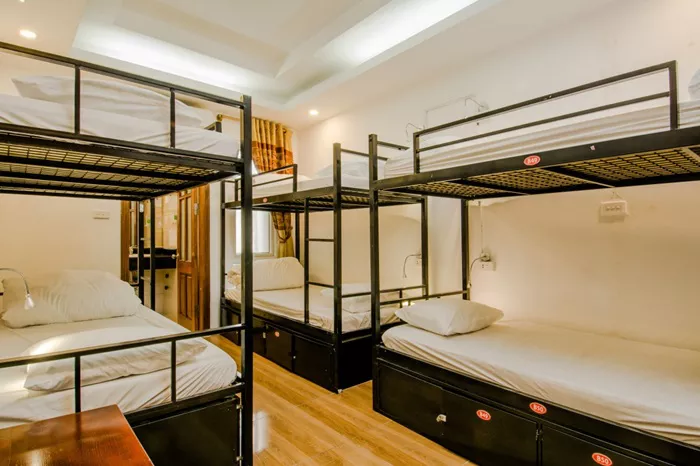A backpackers hostel is a type of low-cost accommodation designed primarily for budget travelers. These hostels cater to people who are exploring new destinations, often for extended periods and with limited funds. The term “backpacker” typically refers to travelers who carry their belongings in a backpack and travel light. Backpackers hostels provide affordable lodging and foster a social atmosphere where travelers can meet and share experiences.
Key Features of a Backpackers Hostel
Backpackers hostels are unique in both design and function. They offer a range of features that make them distinct from hotels or resorts:
Dormitory-Style Rooms: Most hostels offer dorm rooms with multiple beds. Guests share sleeping space with others, helping to keep costs low.
Private Rooms: Some hostels also have private rooms for travelers who want more privacy but still want to enjoy the hostel vibe.
Shared Bathrooms: Bathrooms are usually communal and shared by all guests.
Common Areas: Hostels often have lounges, game rooms, and kitchens that promote interaction among travelers.
Guest Kitchens: Access to a communal kitchen allows guests to cook their own meals, saving more money.
Social Events: Hostels may host bar crawls, movie nights, or group tours to encourage guest interaction.
The Social Element of Hostels
One of the key attractions of a backpackers hostel is its social atmosphere. Unlike traditional hotels, hostels are built around community. Travelers can make friends, find travel companions, and learn from one another. This social component is ideal for solo travelers or those looking to immerse themselves in a diverse community.
Affordability and Value
The biggest reason travelers choose a backpackers hostel is the cost. Hostel beds are significantly cheaper than hotel rooms. Some cheap hostels can be booked for as little as a few dollars per night, depending on the country and city. This makes it possible for people to travel longer and farther on a limited budget.
Typical Guests of Backpackers Hostels
While the name suggests young travelers with backpacks, hostel guests come from many backgrounds. These include:
- Young adults on gap years
- Solo travelers exploring new regions
- Digital nomads working remotely
- Older travelers seeking affordable lodging
- Couples or friends on adventure trips
The diversity in guests makes the hostel environment rich in stories, knowledge, and perspectives.
Location and Accessibility
Backpackers hostels are usually located in central, well-connected areas. This ensures that travelers have easy access to public transport, tourist attractions, restaurants, and nightlife. Being in the heart of the action allows guests to make the most of their stay without spending heavily on transport.
Facilities Offered by Modern Hostels
Over the years, hostels have evolved to meet the changing needs of travelers. Some modern hostels provide:
- Free Wi-Fi
- Laundry services
- Luggage storage
- Bike rentals
- Security lockers
- Workspaces for remote work
These amenities allow travelers to enjoy convenience while staying within budget.
Booking a Hostel
Finding and booking a hostel is easier than ever. Numerous platforms offer detailed listings, including ratings, photos, and reviews.
Safety and Security in Hostels
Many travelers, especially first-time visitors, worry about safety. However, reputable hostels prioritize guest safety. They offer:
- Secure lockers
- 24/7 front desk or check-in systems
- Key card access
- CCTV monitoring
- Female-only dorms
As with any accommodation, it is important to read reviews and choose highly rated hostels to ensure peace of mind.
Pros and Cons of Staying in a Hostel
Like any accommodation type, hostels come with advantages and disadvantages.
Pros:
- Extremely budget-friendly
- Highly social atmosphere
- Flexible booking options
- Located in prime areas
- Many amenities at low cost
Cons:
- Limited privacy in dorms
- Shared bathrooms
- Noise or interruptions
- Security varies by location
Despite the trade-offs, many travelers find hostels to be ideal for the price and experience.
Types of Hostels
Backpackers hostels come in various styles to suit different needs:
Party Hostels: These focus on nightlife and social events.
Eco Hostels: Emphasize sustainability and green practices.
Luxury Hostels: Offer upgraded amenities at slightly higher rates.
Remote Hostels: Located in rural or scenic areas for a nature-based experience.
Themed Hostels: Feature unique décor or concepts such as art, music, or cinema.
Global Hostel Culture
Hostel culture varies by region. In Europe, for example, hostels are part of an established travel network. In Southeast Asia, hostels are abundant and cater to a high volume of tourists. In South America, they often double as cultural hubs. Understanding these regional differences helps travelers choose the right type of hostel for their journey.
Popular Hostel Brands Around the World
Some well-known hostel brands maintain high standards across locations, offering consistent experiences. These include:
- Generator Hostels
- YHA (Youth Hostels Association)
- Selina
- Meininger
- St. Christopher’s Inns
To explore a wide variety of hostels brands, travelers can compare amenities and price points before booking.
Tips for First-Time Hostel Guests
If you’re new to staying in a hostel, consider these tips:
- Bring a padlock for your locker
- Use earplugs or noise-canceling headphones
- Pack light and smart
- Respect shared spaces
- Engage with other travelers
Being prepared enhances your stay and helps you adapt to the hostel environment quickly.
Conclusion
Backpackers hostels offer more than just a place to sleep. They are gateways to global adventure, cultural exchange, and lifelong friendships. With affordability, location, and community at their core, they remain a top choice for budget-conscious travelers. Whether you’re exploring cities, hiking trails, or working remotely abroad, hostels provide a memorable and meaningful travel experience.

